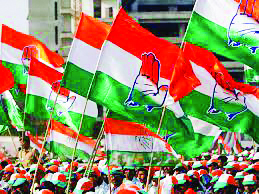Congress has not been able to implement leadership reform as Venugopal’s tenure has exceeded stipulated limit.
New Delhi: At the Congress party’s “Chintan Shivir” held in Udaipur, Rajasthan in May 2022, one of the key resolutions passed stated that the tenure of all All-India Congress Committee (AICC) office-bearers should not exceed five years.
The move was welcomed by delegates, as well as mid-level and grassroots supporters of the party, with many seeing it as an opportunity to introduce new leadership, replacing long-serving figures who had stayed in positions of power due to their proximity to party leadership and the resulting patronage culture.
However, despite the promise of this much-needed reform, it has not been implemented on the ground. As some Congress leaders had predicted, the resolution appears to have remained just a line in the party’s document.
Key leaders, including Mallikarjuna Kharge, Rahul Gandhi, and Priyanka Vadra, who hold the power to make changes within the party, have been unable to implement the change they had agreed on in Udaipur.
A glaring example of this failure is the case of Congress General Secretary (Organisation) K.C. Venugopal. Appointed to the position in January 2019, Venugopal recently completed his six-year term, a tenure well beyond the limit stipulated in the resolution. Prior to Venugopal, former Congress Chief Minister Ashok Gehlot held the post from March 2018. Gehlot had succeeded Janardan Dwivedi, who had been in the position since 2007.
However, Dwivedi’s long tenure was before Rahul Gandhi became the de facto leader of Congress and started introducing new rules and radical changes.
Off-the-record conversations with party leaders suggest that Venugopal, for various reasons, has failed to address the party’s core organisational challenges. Critics claim that Venugopal, instead of focusing on strengthening the party, has surrounded himself with loyalists in key positions across states. This network of supporters, it is alleged, ensures that any shortcomings or inefficiencies related to his leadership do not reach the top echelons of the party.
This has allegedly had a cascading effect, with Venugopal’s close leaders in various states becoming less focused on their own responsibilities. The reason, critics say, is that they know they are protected by Venugopal’s influence in Delhi. They point to the situation in Bihar and Jharkhand, where certain leaders, despite harming the party’s interests, continue to operate without facing any consequences due to their ties to Venugopal.
According to them, the deserving ones are being neglected in favour of the inefficient ones, and these situations can only be addressed if the resolution passed in Udaipur is implemented in spirit.
State leaders have reportedly reached out to their Delhi-based senior counterparts to express concerns about Venugopal’s leadership but have been advised to hold off on taking action, given Venugopal’s reportedly close relationship with Rahul Gandhi. These leaders have been encouraged to wait for the Kerala elections, scheduled for April next year, as Venugopal has reportedly set his sights on the Kerala Chief Minister’s position.
However, party leaders who have worked closely with Venugopal, including during his tenure as a Member of Parliament from Alappuzha and as General Secretary in charge of Karnataka, defend his leadership. They argue that he has a strong understanding of how a large organisation like the Congress party functions and assert that the criticisms directed at him are unfounded.
Among his strengths, party leaders note his ability to avoid creating “powerful” enemies within the party while still asserting his authority. His close relationship with Rahul Gandhi allows him to remind influential colleagues of the position he holds.

